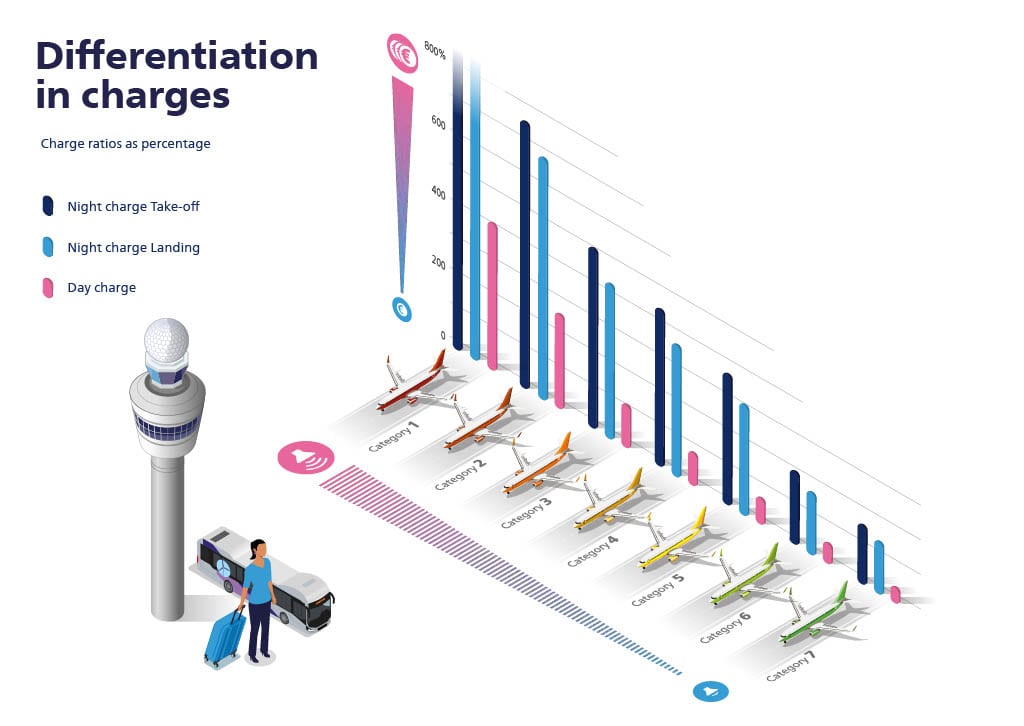Amsterdam’s Schiphol Airport has announced a 37% increase in airport charges over the next three years, which will impact the fees airlines pay to operate flights from the airport. This increase, set to begin in 2025, will add an average of €15 per local departing passenger by 2027. The decision to raise charges is driven by several factors, including high inflation, rising interest rates, and the need to recover pandemic-related losses. The charges will increase by 41% in 2025, followed by a 5% rise in 2026, and a 7.5% reduction in 2027.
To soften the impact on airlines, Schiphol has made a voluntary contribution of €100 million, which is expected to keep charges more manageable without compromising airport operations. The funds raised through these charges are intended to cover the costs of critical investments at Schiphol, such as infrastructure maintenance, service improvements for passengers and airlines, and enhanced working conditions. Over the next five years, Schiphol aims to invest €6 billion in various upgrades, including runway maintenance, terminal renovations, and overall improvements in passenger services.
Schiphol’s fee adjustments also align with its sustainability goals. A portion of the increased fees will encourage airlines to operate quieter, environmentally friendly aircraft. Charges will be lower for airlines using modern, quieter planes, while fees for older, noisier models will be higher, especially for night flights. Schiphol is introducing additional charges for night operations to reduce the noise impact on surrounding communities, with night flights costing 3 to 6 times more than daytime flights, depending on the aircraft type. By 2025, a category of excessively loud aircraft will be banned altogether, demonstrating Schiphol’s commitment to reducing noise pollution and encouraging the use of quieter, more sustainable fleets.
According to Robert Carsouw, CFO of Royal Schiphol Group, “This sharp increase in charges is necessary to invest in the desired quality and sustainability at Schiphol, to improve services to airlines and passengers, and to provide decent working conditions for all people working at Schiphol. In addition, by making it significantly more expensive or even impossible to fly with noisier aircraft and to fly at night, we are contributing to the reduction of nuisance to our neighbours.”

The fees at Schiphol are regulated by the Consumer and Market Authority (ACM) and are adjusted every three years. Schiphol’s current rates, set in 2021, did not account for the extreme inflation and rising interest rates of recent years, leading to a €550 million shortfall in covering operational costs. The revised rates aim to bridge this gap while continuing to support quality airport services.
Schiphol has long included noise impact factors in its charges, but this upcoming adjustment will intensify the distinction between quieter, newer aircraft and older, noisier models. The updated charges are designed to make it more financially viable for airlines to deploy modern, low-noise aircraft. Night flights will now incur higher fees to disincentivize these operations, which can be disruptive to nearby residents. This policy aligns with Schiphol’s objective to achieve a better balance between airport operations and environmental sustainability.
Schiphol’s airport charges are essential to its operations, as the airport is legally required to invest all revenue from these fees back into maintaining and improving airport services, rather than making a profit. With planned investments in infrastructure, passenger services, and sustainability, Schiphol is positioning itself to not only meet rising passenger demands but also address environmental concerns. These planned investments are expected to elevate the airport experience while also supporting Schiphol’s goals of reducing its environmental footprint.
Schiphol will finalize the charges for 2026 and 2027 in the next two years, with future economic conditions possibly influencing adjustments. Through these measures, Schiphol is not only focusing on its financial sustainability but also making strides toward being a quieter, cleaner airport that aligns with environmental responsibilities.
Source Schiphol


